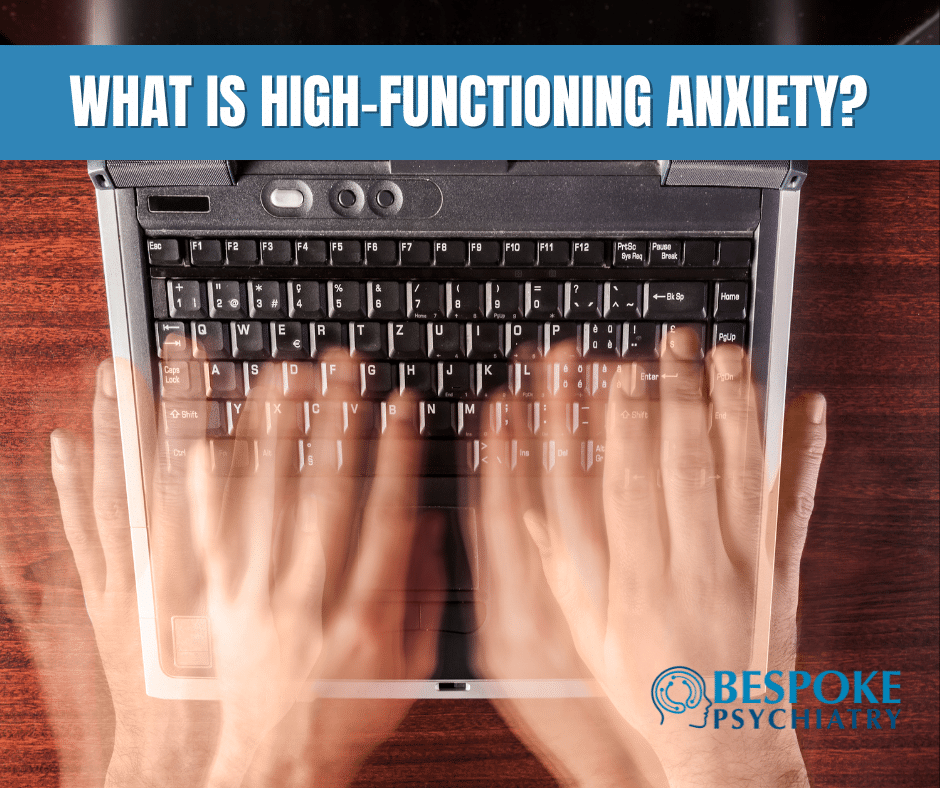
In a fast-paced world that often rewards busyness, ambition, and outward success, anxiety can wear a surprisingly well-polished mask. You might be crushing your deadlines, showing up early to every meeting, and juggling a dozen tasks at once — but inside, you feel like you’re running on fumes. If this sounds familiar, you might be experiencing high-functioning anxiety.
But what is high-functioning anxiety, really? And how can you tell if it’s affecting your life? Let’s unpack this complex experience — one that’s more common than you might think.
What Is High-Functioning Anxiety?
High-functioning anxiety isn’t an official diagnosis in the Diagnostic and Statistical Manual of Mental Disorders (DSM-5), but it’s a term used more and more by mental health professionals and people alike to describe a specific experience with anxiety.
At its core, high-functioning anxiety refers to individuals who live with anxiety but continue to function — even excel — in their daily lives. From the outside, they might seem confident, put-together, even enviably accomplished. But internally, they’re often dealing with:
- Constant overthinking or second-guessing
- A fear of failure or disappointing others
- Restlessness or a need to stay constantly busy
- Difficulty relaxing or “turning off” their thoughts
- Physical symptoms like muscle tension, headaches, or fatigue
In many cases, their anxiety actually drives their success. It can manifest as perfectionism, hyper-organization, and a relentless work ethic. The problem? It’s often exhausting, emotionally taxing, and unsustainable.
Signs You Might Have High-Functioning Anxiety
Not sure if this sounds like you? Here are a few common signs that could indicate high-functioning anxiety:
- You appear calm and competent — but feel overwhelmed inside.
- You have trouble saying no or setting boundaries, even when you’re stretched thin.
- You overprepare for everything, fearing mistakes or disappointing others.
- You’re a people-pleaser, even at the expense of your own needs.
- Your mind races constantly, especially when you’re trying to relax or sleep.
- You feel guilty when you’re not being productive.
- You’re praised for your work ethic — but you know it’s driven more by fear than passion.
If these sound familiar, you’re far from alone. Many people with high-functioning anxiety are high achievers, professionals, creatives, and caretakers who don’t even realize they’re struggling — until burnout hits. Contact Bespoke Psychiatry to book an appointment with one of our expert providers.
Why High-Functioning Anxiety Often Goes Unnoticed
One of the most challenging aspects of high-functioning anxiety is how invisible it can be — to others, and even to yourself. Because it doesn’t always disrupt your ability to work or socialize, it can fly under the radar. In fact, many people don’t seek help because they believe their anxiety is “just who they are” — or worse, that it’s the key to their success.
But unchecked anxiety, no matter how well-hidden, can take a toll on your mental and physical health over time. Chronic stress, sleep disturbances, digestive issues, and even weakened immune function are just a few of the risks.
What You Can Do About It
The good news? You don’t have to choose between being high-achieving and feeling mentally well. There are ways to manage high-functioning anxiety without losing your edge.
Here are a few starting points:
- Talk to a mental health professional. Understanding your anxiety is key. By reaching out to a mental health professional you can learn how to build healthier coping mechanisms and work through different tendencies. For more resources and mental health support, to schedule a consultation, click HERE to become a new patient, or visit Bespoke Psychiatry’s website.
- Practice mindfulness. Learning to be present — even just for a few minutes a day — can quiet racing thoughts and help you regain a sense of control.
- Set boundaries. Saying no isn’t a weakness; it’s a necessary act of self-care.
- Challenge negative self-talk. Just because you’re driven by fear doesn’t mean you have to be. Cognitive behavioral strategies can be incredibly helpful here.
- Get enough rest. Sleep is not a luxury. It’s a biological need — and a critical part of managing anxiety.
You’re Not Alone
High-functioning anxiety can be isolating, but it’s also incredibly common. If you’re someone who “looks fine” but feels anxious under the surface, know that there’s nothing wrong with you — and help is available. You deserve to thrive, not just survive.Want to learn more about mental health and tools for sustainable well-being? Explore more on our site — and take the first step toward a calmer, more balanced life. Contact Bespoke Psychiatry to book an appointment with one of our expert providers or psychiatrists and start your journey toward a happier, healthier you.



